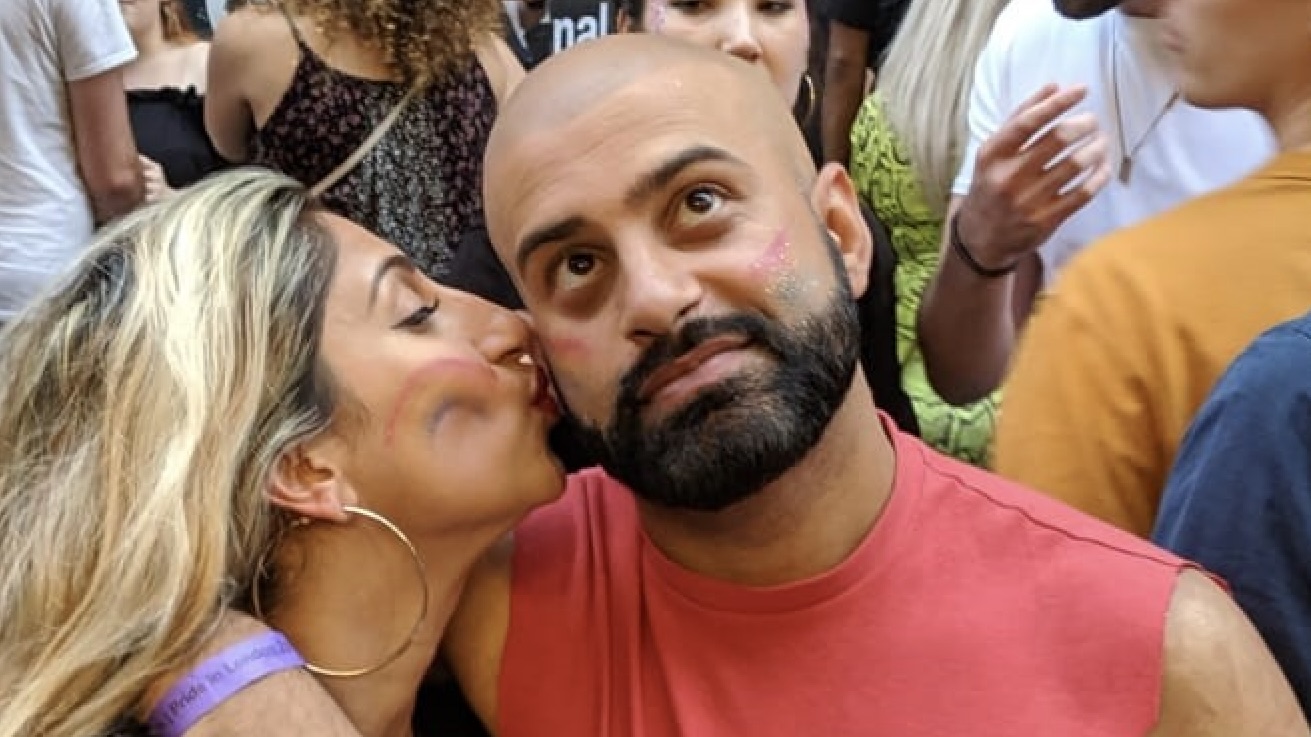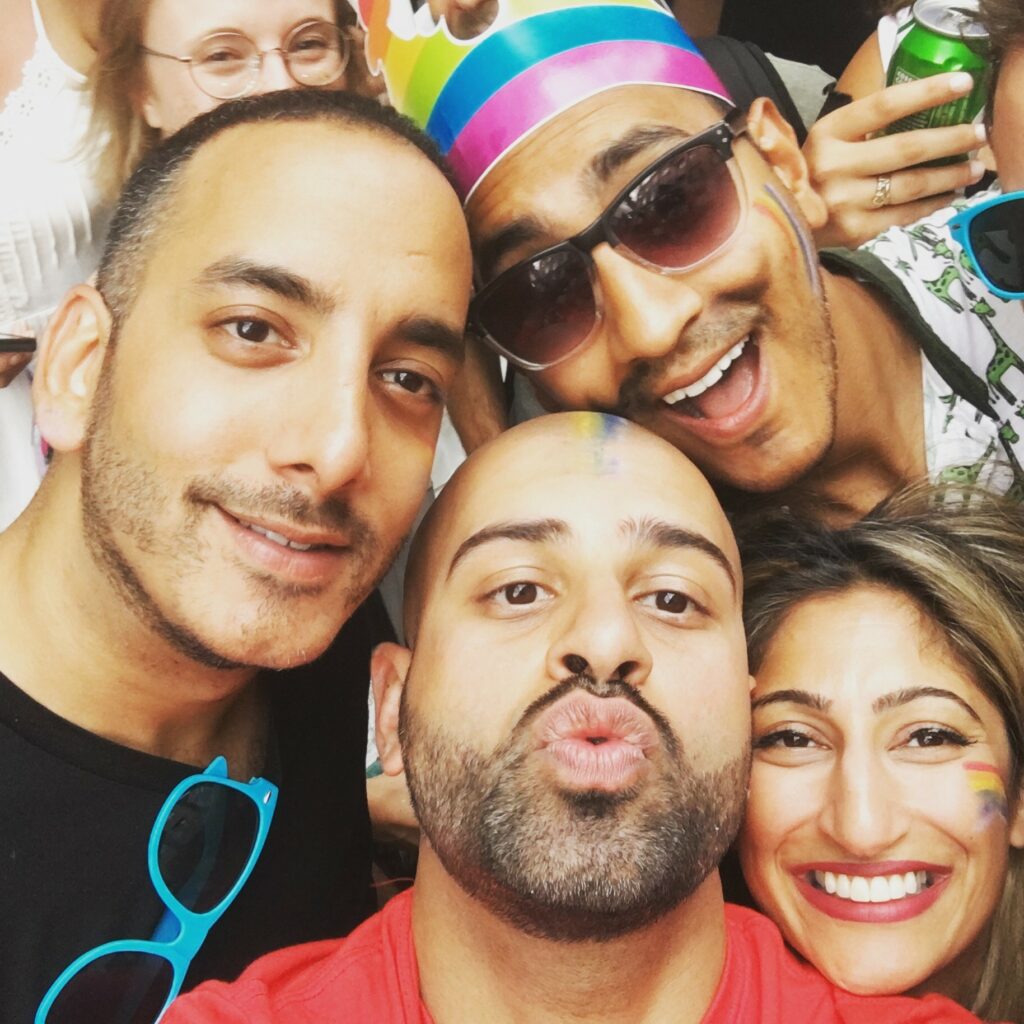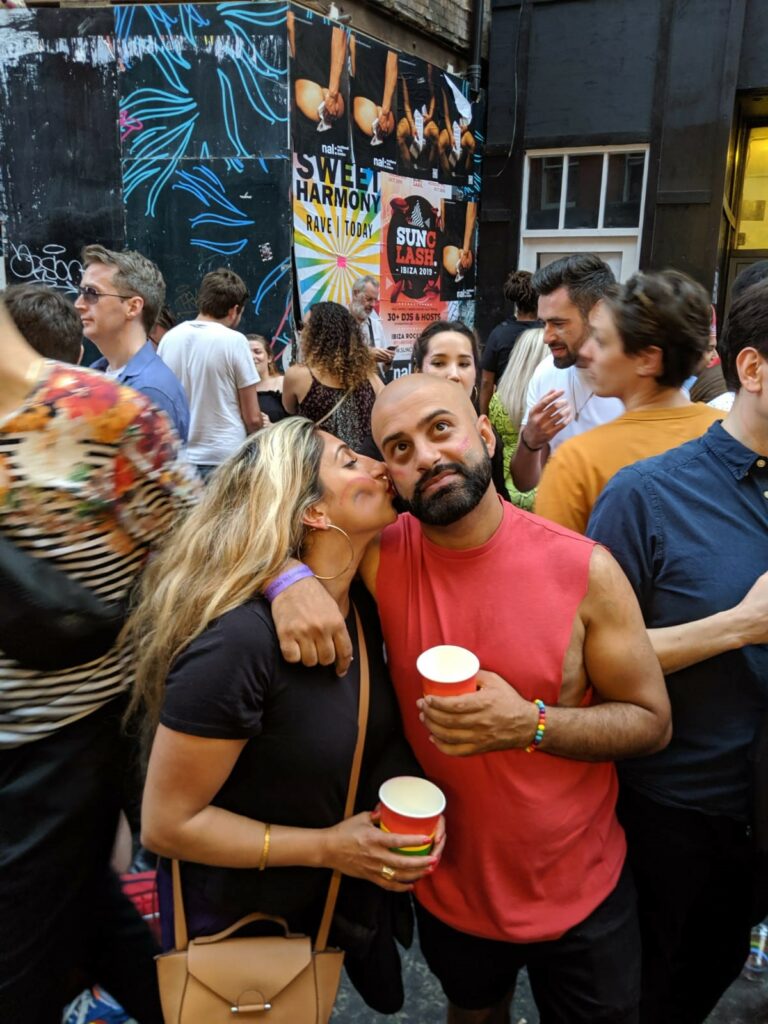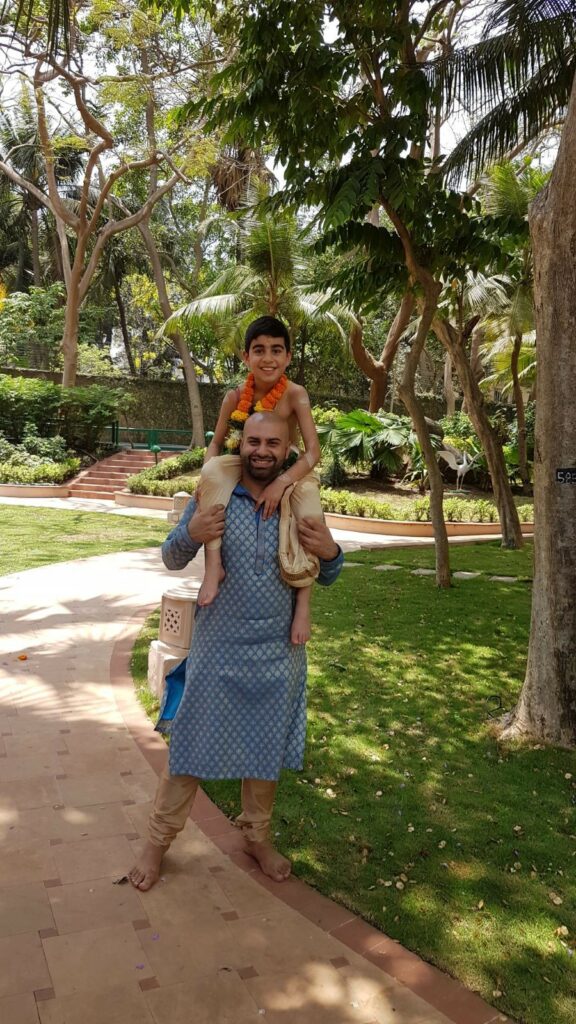Capco’s Jai Raichura: ‘I’ve Been Two People With Two Separate Lives’
In partnership with myGwork.

Jai Raichura is the Managing Principal at Capco, a proud partner of myGwork, the LGBTQ+ business community.
Since the age of 21, for survival, I’ve been two people with two separate lives. I spent my 20s keeping them both as far apart as possible, masking, hiding, and running. Now I spend my 30s working through everything that these two people have made me, both good and bad, but ultimately knowing that I can only have one identity.
Not just for survival, but for my happiness.
Let me introduce you to my first life, where I was known as Rajen. I was born and raised in Essex, part of a large North Indian migrant family, supported by an even larger extended South Asian community.

My parents came to the UK from East Africa, aspiring to provide more for their children than they ever dreamed of. I benefited from a rich cultural heritage with a mixture of both British and Indian values.
We celebrated Diwali, the Festival of Lights every year without fail with seven other families, lighting fireworks and eating more food than the populations of some small countries. We celebrated Holi, the festival of colour, with water fights on a public beach which culminated in a huge bonfire.
We celebrated Navratri, a festival which marks a battle between good and evil. This was definitely a firm family favourite. My sisters and I would rush home, pretend to go for a power nap as my Dad instructed, and then go on to dance the night away until well past midnight with all of our friends and family.
All on school nights!
These memories represent my childhood, my teens, and everything I knew. They were some of the happiest times of my life. My family adored me, especially my Mum, who openly called me her favourite child from the day I was born.
Yes, I was spoilt – but as I neared my twenties, I knew that something drastic had to happen. Because I was gay, and there was no place for that in my family, my extended culture, or any part of the tightly knit, ‘keep up with the Kooper’s’ world that I’d known all my life.
Enter Jai, the Sasha Fierce to my Rajen if you will, though a little timider…at first. At 21, I tiptoed out of a sari-clad closet into, well, a larger wardrobe where I sat for about seven years.
At first, I started meeting other British South Asians as I thought I might be able to relate to them a little better. And I was right. I met my two best friends – who to this day I call brothers – and a former partner.
We moved into a new pad in très chic Tower Bridge and started exploring the gay mecca that is Soho. I made loads of new friends and I thought I’d won at life.
But being Jai, wasn’t easy. Because the happier Jai became, the more Rajen disappeared from sight.
I withdrew from my former life. I cut off, often cruelly, my friends from school, my community, and university. I stopped going home for Diwali. I stopped going to weddings and all cultural events for fear of being approached by some Aunty for a marriage proposal (it happened a lot).

My parents were out of their minds with worry because I never talked about my new life and they knew none of my friends. It was like shedding skin. I was convinced that Jai and Rajen couldn’t possibly co-exist.
It was all fine for a while, but as I approached my thirties, things started to unravel. My head in the sand approach wasn’t going to cut it anymore. The truth is that, even though I appeared confident, gregarious, and made friends with ease, I was crippled by low self-esteem. Because I felt completely rejected by my past – the beautiful rich Indian heritage that had given me all those years of happiness had deemed me unworthy.
It touched everything – my relationship, my friendships, and how I felt about myself. And worst of all, I kicked myself over and over again for feeling this way.
According to the charity, Mind, and thegaytherapycentre.com low self-esteem can affect your ability to:
· recognise your strengths and positives
· make decisions and assert yourself
· show kindness towards yourself
· believe you deserve happiness
· feel able to try new or difficult things
· move past mistakes without blaming yourself unfairly.
I have made some good progress with some of these throughout my thirties. I built bridges between my two lives, some stronger than others. After a number of tough years of never challenging the situation for fear of rejection, I started to force my immediate family to see who I really was, to make them accept me.
I have a distinct memory of shouting at my parents in a car park outside my flat screaming: “You and you made me. Deal with it”. I have a great relationship with my sisters and their families. I love my nephews and nieces to pieces.
I’m out to all of them and if there’s one thing, I want to ensure that I leave them with, it is having an open and accepting view of the world.

But every so often, I spiral. I find my emotions at the mercy of other people’s actions, and I often over-analyse situations which, in hindsight, simply are what they are. I also criticise myself a lot, no matter how well I’m doing at work, or how much personal success I have.
I’ve found COVID especially tough because I don’t deal with uncertainty well. Some of my best friends moved out of London for work or just to get more space. That has felt like a punch in the gut.
I have learned some techniques that have helped along the way, such as giving yourself positive affirmations. I find writing very cathartic now too, which is one of the reasons I’m sharing this story. I’ve found that recognising mental health challenges and being vulnerable are NOT weaknesses, quite the opposite. It makes you stronger.
I’ve also found that helping others and doing charity work for the LGBTQ+ community makes me feel empowered to change someone else’s experience, and ensure it’s somehow better than my own.
To be clear, my new community is far from perfect – I’ve experienced blatant racism more times than I can count when meeting new people. “But you don’t look Indian” is one of my favourite lines to which I’d always ask: “what exactly does an Indian look like?”. I mean, there’s an actual billion of us.
I also still have work to do – connecting my ever-distant cultural past with my present and learning how to bring it with me into my future. I’d like to forgive myself for treating Rajen and everyone in his life so badly because I thought that was my only option.
I want to reassure a younger Rajen that everything is actually going to be ok. And tell my present self that I am very much worthy of real love.
I deserve it just as much as everyone in my new LGBTQ+ community and everyone in my extended community – all of my friends who grew up in the same rich, beautifully confused, British south Asian culture, so full of colour, light, and camp Bollywood hot pants.
Jai Raichura will be joining myGwork for a panel on 24 October to celebrate Diwali, where he will further discuss the nuances of his culture and how we can create a more inclusive workplace. Register now to take part!
Capco is a proud partner of myGwork, the LGBTQ+ business community. Find out more about their job opportunities here.
